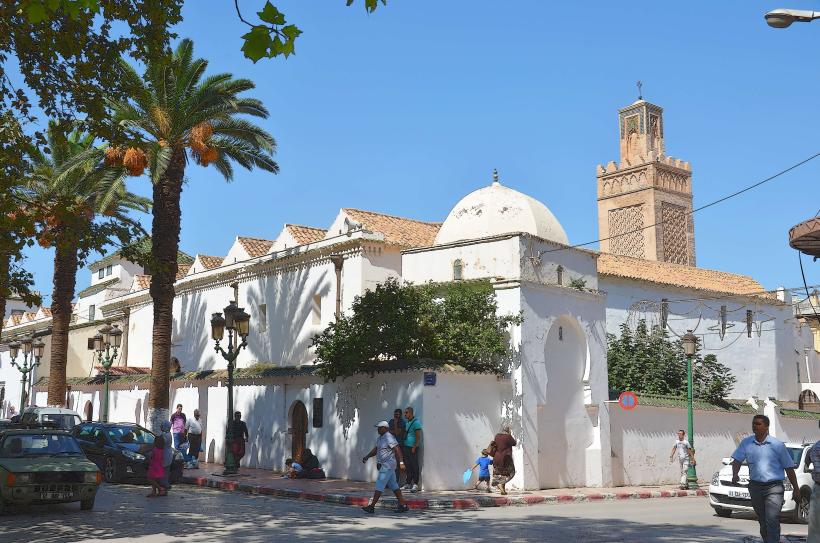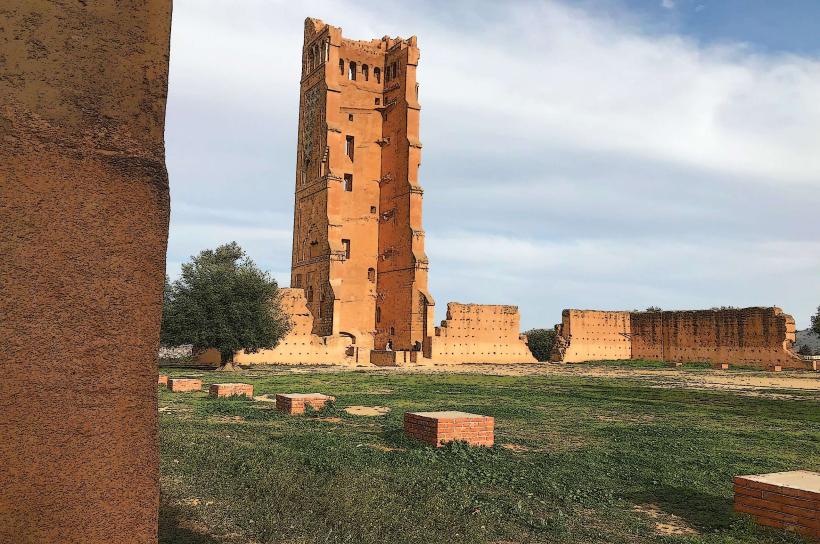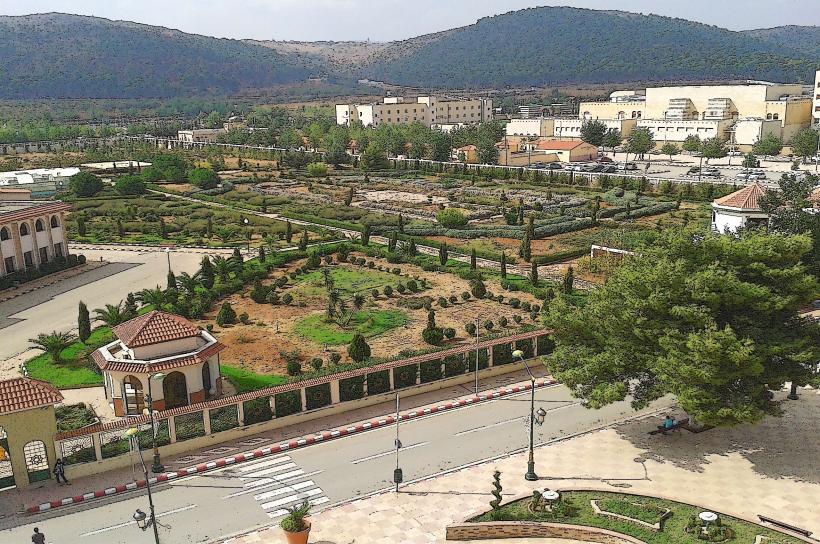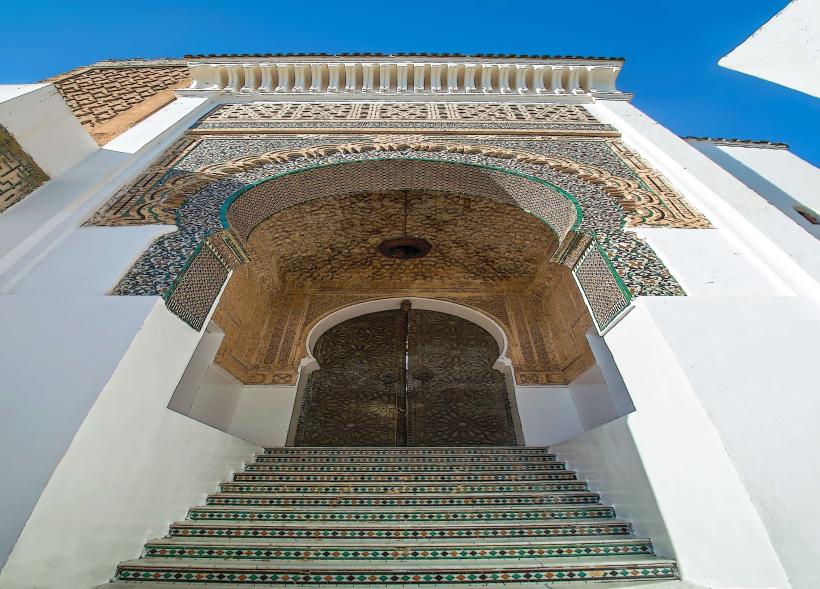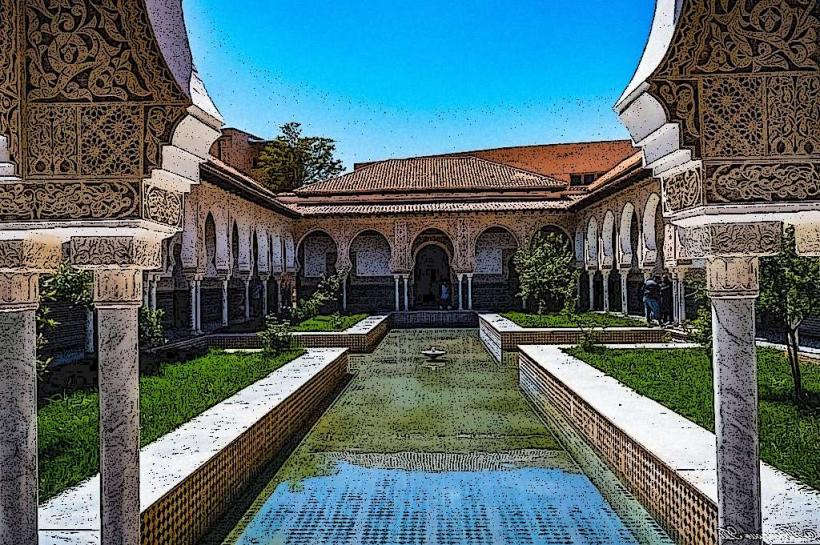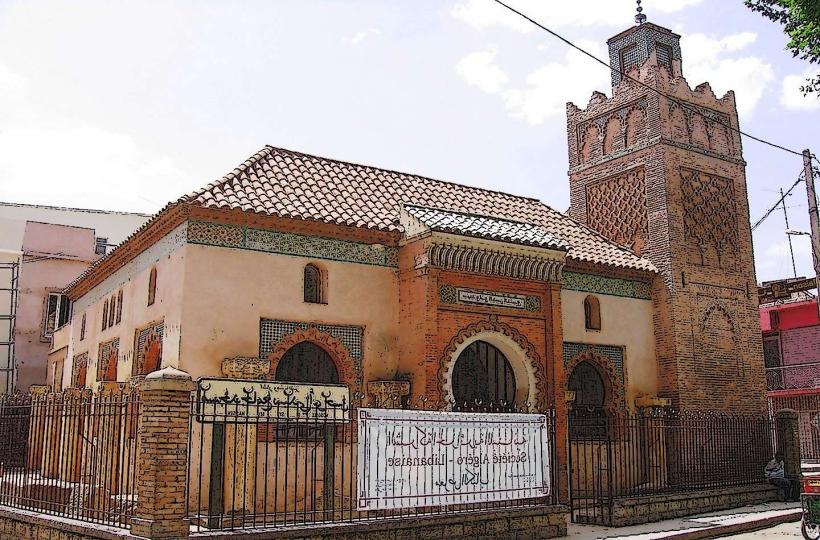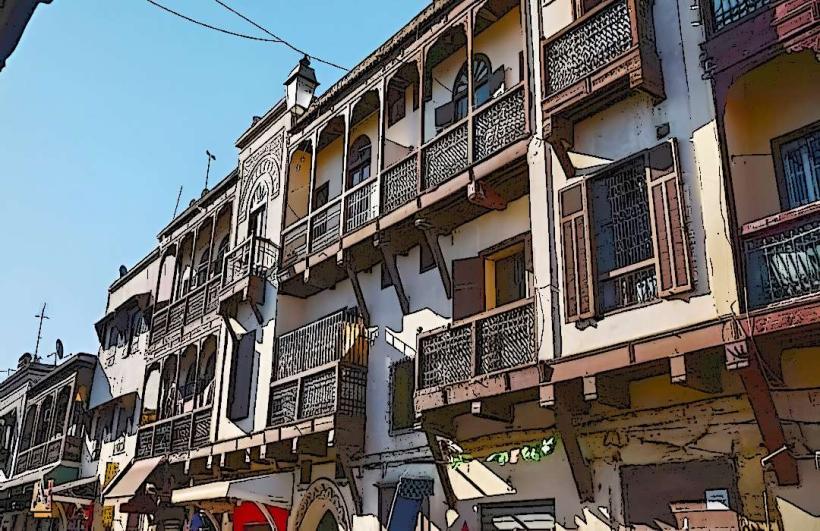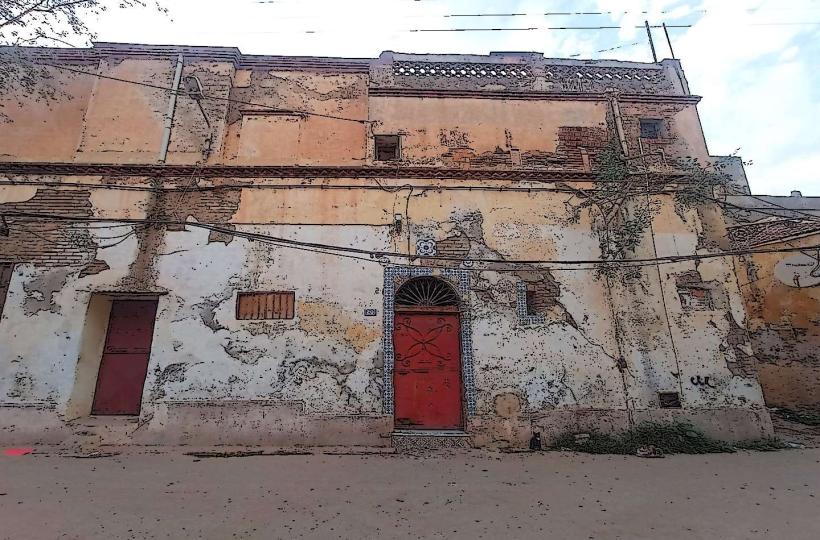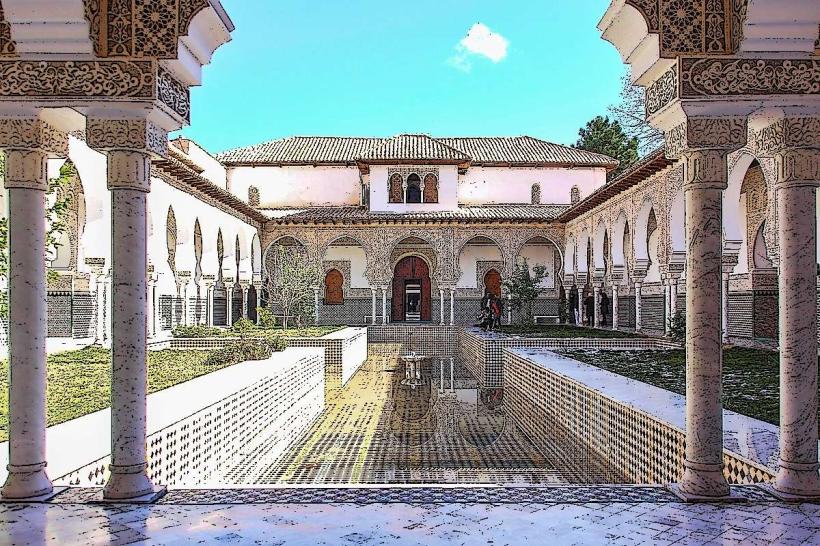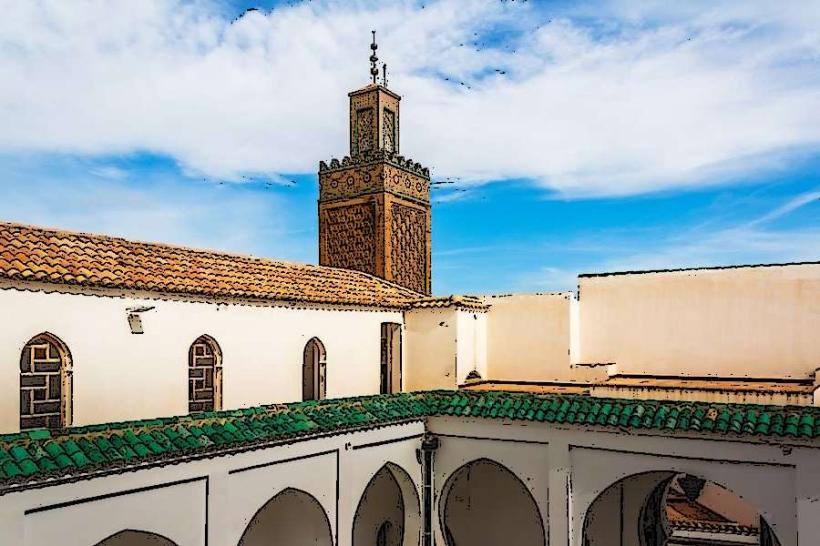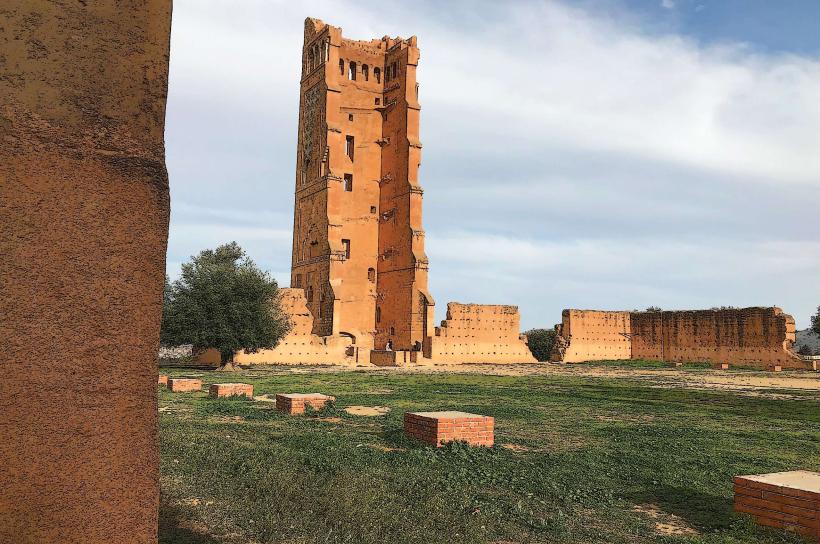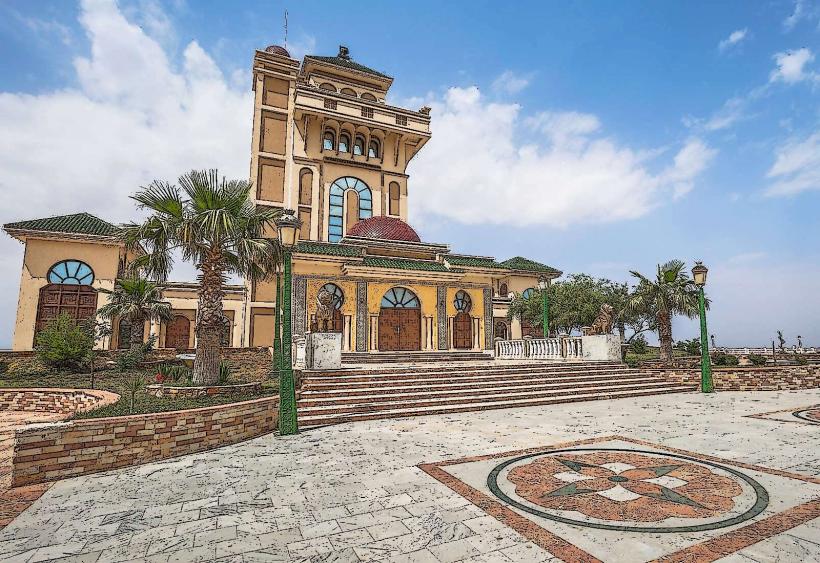Information
Landmark: El-OklaCity: Tlemcen
Country: Algeria
Continent: Africa
El-Okla, Tlemcen, Algeria, Africa
El-Okla (Algeria)
El-Okla is a historic site in Algeria, located near Tlemcen, which holds archaeological and historical significance due to its ancient role during various periods, especially under the Almoravid and Almohad dynasties. It is part of the rich cultural and architectural heritage of western Algeria and is closely linked to the region's past as a hub of Islamic civilization and military defense.
Historical Background
El-Okla's history dates back to the Middle Ages, when it served a strategic role during the Almoravid and Almohad periods. The region was part of the Almoravid Empire, which expanded through North Africa and into Andalusia (Spain) in the 11th and 12th centuries. The site also came under the influence of the Almohads, a Berber Muslim dynasty that succeeded the Almoravids.
While the specific founding date and early history of El-Okla remain somewhat obscure, it was one of the many fortresses and settlements built to control the Tlemcen region and to protect the important trade routes passing through the area.
Architectural Features and Significance
The architecture of El-Okla reflects the Islamic military and defensive structures built during the medieval period in North Africa. Many of these fortifications were constructed with stone and mud brick, typical of the Almohad and Almoravid building styles.
Fortifications: El-Okla was known for its fortress walls that helped defend the area against both internal uprisings and external invasions, especially from Christian European kingdoms.
Mosques and Religious Structures: Like many medieval Islamic sites, El-Okla likely had mosques and other religious buildings, although only limited archaeological evidence remains today. The minarets of such structures would have served both religious and military purposes, signaling the presence of the city.
Strategic Location: Situated along the trade routes, El-Okla also played a significant role in the economic and political landscape of the region. The location was key to the control of Tlemcen, which was a prominent city in the Islamic world at the time.
Role in Regional Conflicts
El-Okla's strategic position near Tlemcen made it an important center during periods of conflict, especially during the reign of the Almoravids and Almohads. It was part of the ongoing battles for control over the region, as Tlemcen was a capital city of great importance both politically and militarily.
Almoravid Period: During the Almoravid era (11th to 12th centuries), El-Okla served as part of the Almoravid network of fortifications designed to protect the empire from external threats, particularly from Christian Spain and rival Muslim factions.
Almohad Influence: After the Almoravids, the Almohad dynasty (12th to 13th centuries) took control of the region, and El-Okla continued to play a defensive role. The Almohads focused on consolidating power and expanding their territories, making such fortifications essential.
Current State and Tourism
Today, El-Okla is primarily an archaeological site, with ruins and remnants of its past. It is not as widely known or visited as some other sites in Tlemcen or Algeria, but it holds value for researchers and historians exploring the medieval history of North Africa.
Excavations: Ongoing excavation work may uncover additional features of the site, such as religious or residential structures, adding to our understanding of the community that lived there.
Tourism Potential: El-Okla, along with other nearby sites such as Mansourah and Tlemcen, offers a rich glimpse into medieval Islamic architecture and history. For those interested in the Almoravid and Almohad periods, the site could serve as an important stop along the historical routes of North Africa.
Conclusion
El-Okla represents an important piece of Algeria’s medieval Islamic heritage, with its defensive architecture and strategic location linking it to the broader historical context of the Almoravid and Almohad empires. While much of its former grandeur remains in ruins, the site provides valuable insights into the region’s military and religious past. As an archaeological location, El-Okla continues to be of interest to scholars and could be an intriguing destination for those exploring the history of North Africa's medieval period.

